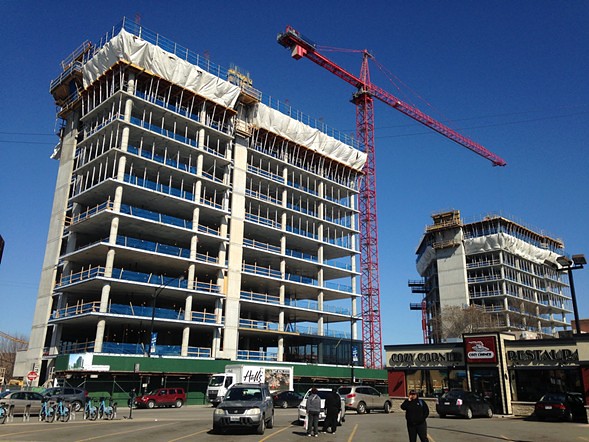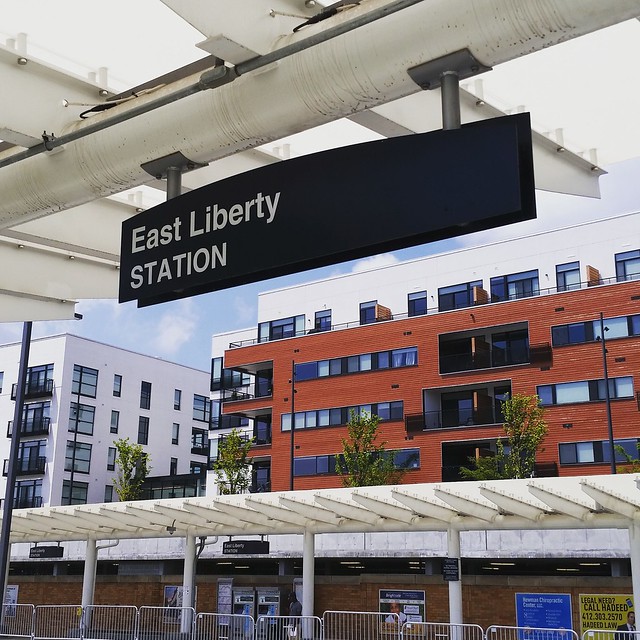
Earlier this week the Millennial Trains project stopped in Chicago on its five-city national tour on Amtrak, bringing a group of 26 young people to meet with locals within each city. They discussed how issues of housing affordability and inequality, and transit affect their lives, and talked about ideas for improving conditions in Chicago.
This leg of the westbound tour is also making stops in Pittsburg, Kansas City, Albuquerque, and Los Angeles. Next week another group of Young people will travel eastbound from L.A., stopping in San Francisco, Denver, Milwaukee, and Detroit. The national affordable housing and renters advocacy campaign Make Room is a sponsor.
I caught up on the phone with Rachel Reilly Carroll, an employee of Enterprise Community Partners, a Maryland-based nonprofit that helps develop affordable housing, who is one of the tour participants, shortly after she arrived in Chicago.
Among other projects, Enterprise’s Chicago office has been involved with efforts to encourage affordable transit-oriented development across the region. According to their website, this year they provided grants to ten community developers working on TOD projects in Chicagoland.
They also launched the Enterprise eTOD Collaborative in partnership with the Center for Neighborhood Technology in an effort to support these projects and organizations. They’ve also been promoting TOD in the south suburbs through the Southland Community Loan Fund, and through technical assistance to developers and municipalities. They hope to work on several south suburban TOD projects in 2016.
The goal of these efforts is create affordable housing with good access to jobs, schools, healthcare, and recreation, while reducing car dependency.
“Equitable TOD is about ensuring that transit access remains available to folks who have lived near transit, and reducing car dependency for others who may currently have long transit or car commutes, so that they can benefit from the time and cost savings,” Carroll said.

Carroll, who has visited Chicago several times, was planning to spend much of the day in Logan Square. “Obviously there has been a lot of change in terms of rising rents in the neighborhood,” she said. “They’ve gone up 60 percent since 2000. It’s hard not to look up and down Milwaukee Avenue and notice there’s been change.” She planned to meet with staff from the Logan Square Neighborhood Association and Bickerdike Redevelopment Corporation, and possibly check out the Ashland Avenue corridor, where the city has proposed building bus rapid transit.
New high-end TOD projects like the Twin Towers and “L” developments on Milwaukee, in which ten percent of the units are affordable apartments, have been protested by affordable housing activists who argue the projects are contributing to displacement. However, some local organizations such as the Metropolitan Planning Council have argued that increasing the housing supply takes pressure off the existing rental market and reduces the incentive to tear down multiunit buildings to make room for luxury homes.
“I hope we can all agree that it’s very destructive when longtime residents are forced to leave their neighborhoods,” Carroll said. “It breaks up communities and support systems.”
She noted that when the tour stopped in Pittsburgh, she learned more about a TOD affordability issue in the East Liberty neighborhood. Hundreds of luxury housing units were built on top of the new East Liberty Transit Center. Carroll said that, in response to this change, the landlord of a privately owned affordable housing development whose affordability covenant expired a decade ago, gave the tenants 90-day eviction notice. Meanwhile, a new Whole Foods upscale supermarket is moving in.
“It’s very important for community and neighborhood character that there are efforts to preserve diversity,” Carroll said.





